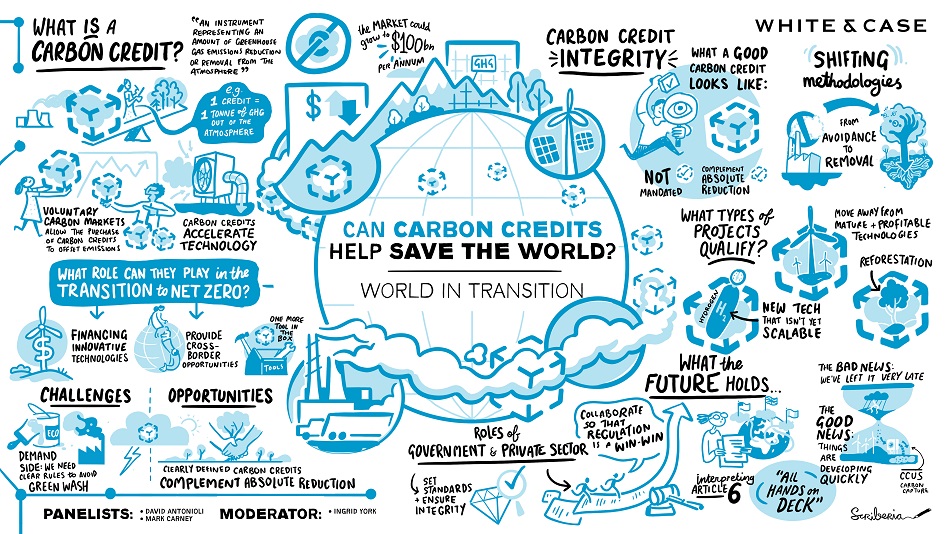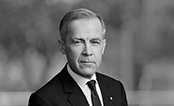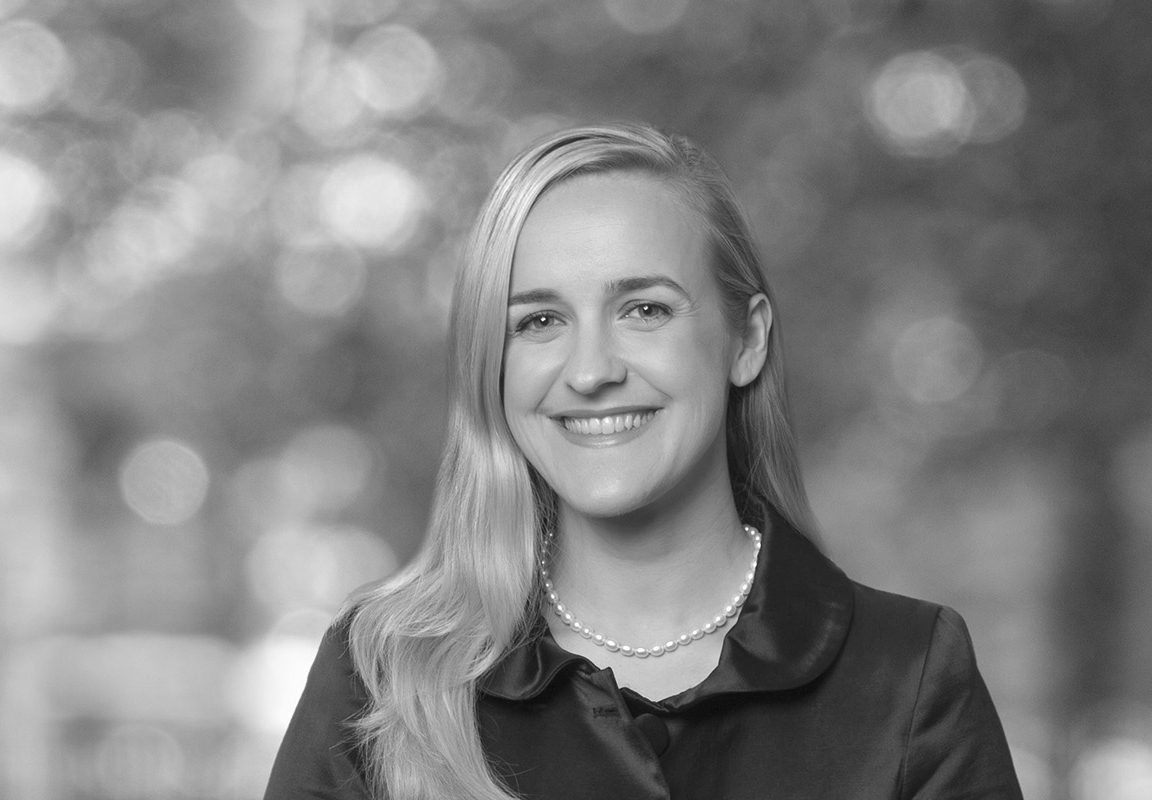
Governments and corporates around the world are stepping up climate commitments, but what would it actually take to achieve their net-zero ambitions? Can carbon credit markets help companies–and the world–meet ambitious emissions targets and play a key role in saving the world?
Our recent webinar 'Can carbon credits help to save the world?' featured Mark Carney, Former Governor of the Bank of England and now UN Special Envoy for Climate and Finance, together with David Antonioli, Chief Executive Officer, Verra, to debate and comment on the role of carbon credits in reaching net-zero.
See findings from the webinar presented in the graphic below
|
MODERATOR |
|
|
Ingrid York, Partner, White & Case |
|
| SPEAKERS | |
|
Mark Carney, Former Governor of the Bank of England and now UN Special Envoy for Climate and Finance Mark Carney, former Governor of the Bank of England, is the first non-Briton to be appointed to the role since the Bank was established in 1694. After graduating from Harvard and gaining a doctorate in Economics at Oxford, Mark spent 13 years at Goldman Sachs – including senior positions in Sovereign Risk, Emerging Debt Capital Markets and Investment Banking. He played a key role in the company's response to the Russian financial crisis, and was then headhunted by the Canadian Department of Finance to lead the sale of the government stake in Petro-Canada. Just three years later he was appointed Governor of the Bank of Canada and the youngest Central Bank Governor of the G20. He has since been credited with shielding Canada from the worst effects of the global financial crash, by cutting the overnight rate and committing to the lowest possible levels of interest rates. Time Magazine subsequently included him in their Most Influential 100: "Central Bankers aren't often young, good-looking and charming, but Mark Carney is all three – not to mention wicked smart." Mark was appointed Governor of the Bank of England in 2013 with a mission to "refresh and modernise the organization." He restructured and expanded the senior hierarchy, and broadened the policy toolkit by implementing a new Term Funding Scheme to support bank lending, while renewing focus upon way to rein in borrowing without resorting to the use of interest rates. His introduction of "forward guidance" gave businesses and consumers clarity on interest rate policy. Notably, he was the first Central Bank Governor to champion environmental concerns, overseeing the development of stress tests for measuring the vulnerability of banks to climate risk. Unafraid to act decisively in the face of instability, he called for interest rates to be cut immediately following the Brexit referendum, rallying financial markets. He later used his final week in charge to slash borrowing costs, in rapid response to the emerging crisis of the COVID-19 pandemic. A keen athlete, competing in both the London and Ottawa Marathons, Mark has said that his dream job would be goalkeeping in Canada's NHL hockey league. He speaks fluent French and holds Irish and British citizenship. Thanks to distant relatives in Liverpool he is a passionate supporter of the Everton Football Club. |
|
|
David Antonioli, Chief Executive Officer, Verra David serves as Chief Executive Officer of Verra where he oversees all aspects of the organization, including ensuring the financial and operational health of the organization and that the organization's certification programs meet high quality integrity and transparency standards. In recent years David's focus has been to expand the scope of Verra, broadening it from an organization dedicated exclusively to certifying carbon reductions to one that also identifies and develops other standards frameworks for a sustainable world. In this vein, David works to ensure that the standards Verra identifies, develops and manages facilitate the flow of capital to enable countries, the private sector and civil society achieve and demonstrate their climate and sustainable development goals. David works closely with the Verra Board to chart the future course of the organization, and spearheads outreach to government, foundation, business and environmental leaders around the world. A world-renowned expert on climate change, David began his work in this sector when he worked for ICF Consulting in 1994 providing technical advice to Latin American countries developing their GHG inventories and serving on the team that pioneered verification procedures for emission reduction projects. In 1999 David joined the United States Agency for International Development (USAID) in Mexico as its global climate change advisor overseeing the development of an energy-sector grid emission factor and baseline studies for forest protection efforts. In 2003, David joined EcoSecurities in Oxford (UK) where he led a joint venture to develop landfill gas-to-energy projects under the Clean Development Mechanism (CDM). At EcoSecurities David also spearheaded the company's efforts in the voluntary market, helping to identify key infrastructure and procedural needs that the voluntary carbon market lacked in the early days of its existence. David holds a Bachelor's degree in Sociology from Princeton University and a Master's in Public Policy, with concentrations in Environmental Policy and International Development, from the John F. Kennedy School of Government at Harvard University. Originally born and raised in Mexico City, David now resides in Bethesda, MD with his wife and two children. |





